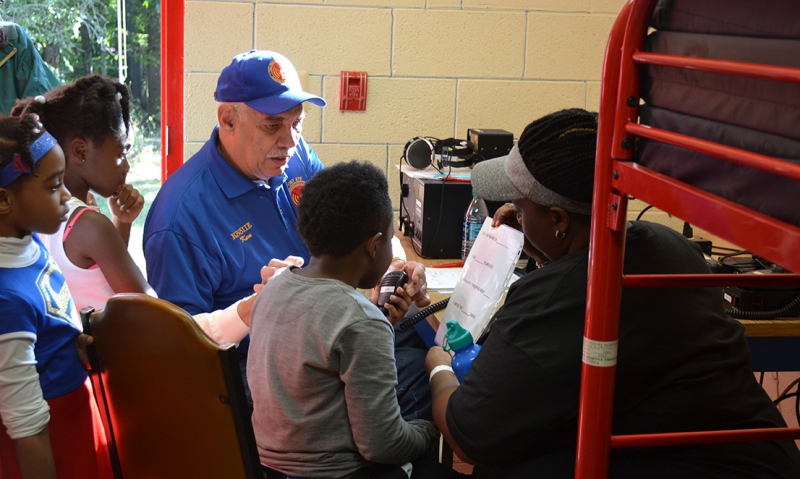
Legion supports BSA through amateur radio
The influence of The American Legion on our nation's young people dates from its founding in 1919. A concern in caring for the orphans of World War I veterans sparked the beginning of American Legion Children's Homes in the 1920s. To encourage young people toward physical fitness and the value of teamwork, the Legion Baseball program came to life in 1925. In the 1930s, the program of American Legion Boys State became the means to teach and provide a hands-on experience to civic duty and governmental operations to high school boys. These programs and others that came later were, and most still are, Legion-owned and operated. One program, not uniquely Legion but as effective and long-standing as any, is the relationship enjoyed for decades with the Boy Scouts of America.
The 1930s recorded fewer than 3,000 Scouting units sponsored by Legion posts. That number dipped significantly during World War II, but grew steadily afterward, reaching 4,000 Legion-sponsored units by 1950. The increase is attributable, certainly, to the rise in Legion membership and the increase in the number of Legion posts after the war. Those returning, having been trained and experienced in many of the skills required in Scouting, were eminently qualified to guide young boys in their endeavors. Be it first aid, map reading, tent life, survival skills or field communications, the GI was the right person for the job.
The Scout-Legion relationship is no different today. While the subjects, techniques and tools have expanded considerably, the GI is still the right person for the job. And, given the growth in electronic communications, who better to instruct Scouts in that arena than former military communicators? Case in point, Maryland Post 275's American Legion Amateur Radio Team, call sign N3TAL. Throughout the year, this 18-member team teaches Scouts and other youth groups in their area about radio communications. Instruction and explanation with hands-on opportunities covers a broad spectrum, from teaching Morse code to contacting the International Space Station via amateur radio.
Annually in October, the post participates in Jamboree-On-The-Air (JOTA), the largest Scouting event in the world. It uses amateur radio to link Scouts and hams around the world, around the nation and in communities everywhere.
Prior to the formation of N3TAL, Legionnaire Kenneth Greenhouse, KB3IIE, was involved with JOTA at the Legion's Southern Maryland District Youth Camp. He estimates they have directly touched the lives of more than 100 children in their Southern Maryland community through JOTA. "A few of them," says Greenhouse, "have even tested for and passed the Amateur Radio Operators exam" for a technician-class FCC license.
Like Greenhouse, Post 275 Legionnaire Everett Bollin, WA3DVO, assisted by wife Pamela, N3NKW, conducted JOTA events at their home prior to the advent of the post radio team. A former Navy chief radioman, Bollin and the team use displays to explain things like basic radio operation, satellite tracking and contacts with the International Space Station. Videos are used to show amateur radio in action and to augment "on-air" operations by the youngsters.
"Even kids as young as 6 are amazed and find it exciting to talk to people around the world," Bollin said. On teaching Morse code and its use to youngsters, he notes, "They're a lot better at it than grown-ups." And he finds renewal in working with Scouts. "With 60 years as an amateur radio operator, our work with JOTA brings enjoyment to me. It allows me to pass all this on to the kids, and revives my enthusiasm for amateur radio."
Greenhouse shares that sentiment. "Having been with JOTA prior to the formation of TALARC and the Post 275 team, I'm glad to see it as a chance for old guys to interact with the kids in efforts to introduce them to a new 'old' technology," he said. "More Legion posts and TALARC clubs involved with JOTA will be a great help to kids and to The American Legion."
Both Greenhouse and Bollin understand the importance of the work they do with the Scouts they reach out to. Taking amateur radio to young people goes beyond mere introduction to a hobby. As with the many youth programs of the Legion, it is an opportunity for The American Legion to, again, be an influence for good on America's youngest citizens and ultimately on us all as a nation.
